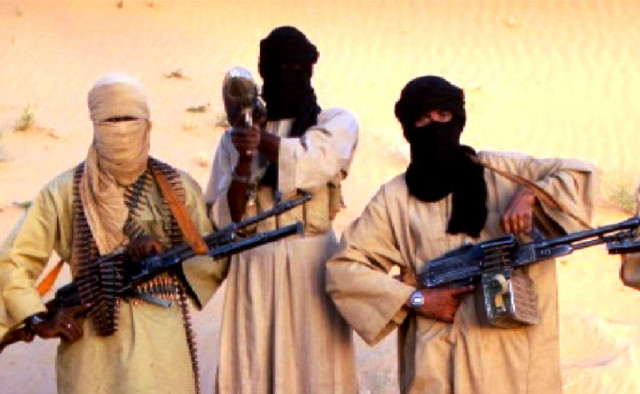State policy and jihad
The rally of the killers, Al-Badr Mujahideen, sends signals that will be absorbed equally by politicians in Pakistan.

There were other jihadists represented at the conference: Gulbuddin Hekmatyar’s Hizb-e-Islami Afghanistan, Jamaatud Dawa and several unnamed gangs. Al-Badr leader Bakht Zameen told 1,000-plus supporters that ‘his commanders were seeking resources to keep the jihad going in Kashmir and Afghanistan’. He had supporters from Punjab, Khyber-Pakhtunkhwa and Azad Jammu and Kashmir thronging stalls, selling propaganda CDs and jihadi literature.
Bakht Zameen spoke for everyone present when he condemned the reopening of the Nato transit routes: “We were very happy when the routes were closed. But the rulers gave in to US pressure. The government should not side with infidels because it will create anarchy in the country”. He debunked the view that jihadi outfits were being backed by the security establishment: “We should quell such propaganda. Our financiers have withdrawn their support following harassment. But still we have sympathisers”.
The leader of Hizbul Mujahideen and a fugitive from Indian-administered Kashmir, Syed Salahuddin, told the gathering that Pakistan had been ‘encircled by the US and its Nato allies’: “Pakistan is the target of the US-Israeli nexus. Our fighters are defending Pakistan at a time when its geographical boundaries, security and Islamic identity are at risk”.
Taken together with the long march of the Difa-e-Pakistan Council and religious parties going from Lahore to Islamabad, this gathering of jihadists is ominous and calls for a response from the government. One can, however, predict that the government, weakened by the judiciary, the army through the memogate case and the parliamentary and extra-parliamentary opposition, will make lame excuses in the same vein as was done by federal senior adviser on interior, Rehman Malik, who made a half-hearted attempt at promising that ‘banned organisations’ will not be allowed to enter Islamabad together with the long march. The fact is that Islamabad is already crawling with ‘banned organisations’ and controlling hundreds of illegal mosques in the capital.
The world outside will be aghast. Is it the army’s response to the deal the PPP government made with the US over the Nato supply route even though the army chief was attending the Defence Committee of the Cabinet when it gave the go-ahead signal? The world will be compelled to interpret the ‘conference’ in Rawalpindi as the army’s expression of disapproval of policies being pursued by the PPP on both the borders of Pakistan, with India and the US. In the midst of a protest march against the Nato route deal, which the media has already declared meets none of the guidelines decided by parliament, this development would appear to the outside world as a precursor to the undoing of the deal itself.
Al Qaeda’s Taliban have already declared that they will attack Nato trucks as they start plying again. The Khyber-Pakhtunkhwa government is quaking in its shoes at what will happen when the Torkham route gets going, carrying 70 per cent of the Nato supplies. The army apparently is not committed to the security of the caravans and any other force is bound to stand aside and watch the supplies being burned or looted, their heads full of media brainwashing. The rally of the killers at Rawalpindi sends signals that will be absorbed equally by politicians in Pakistan. Those who did not go to the long march of the clerics have already expressed their full support to it. No one wants to die on orders from al Qaeda. The only targets will be the PPP and the allies, who still go along with its policies.
Published in The Express Tribune, July 10th, 2012.
















COMMENTS
Comments are moderated and generally will be posted if they are on-topic and not abusive.
For more information, please see our Comments FAQ